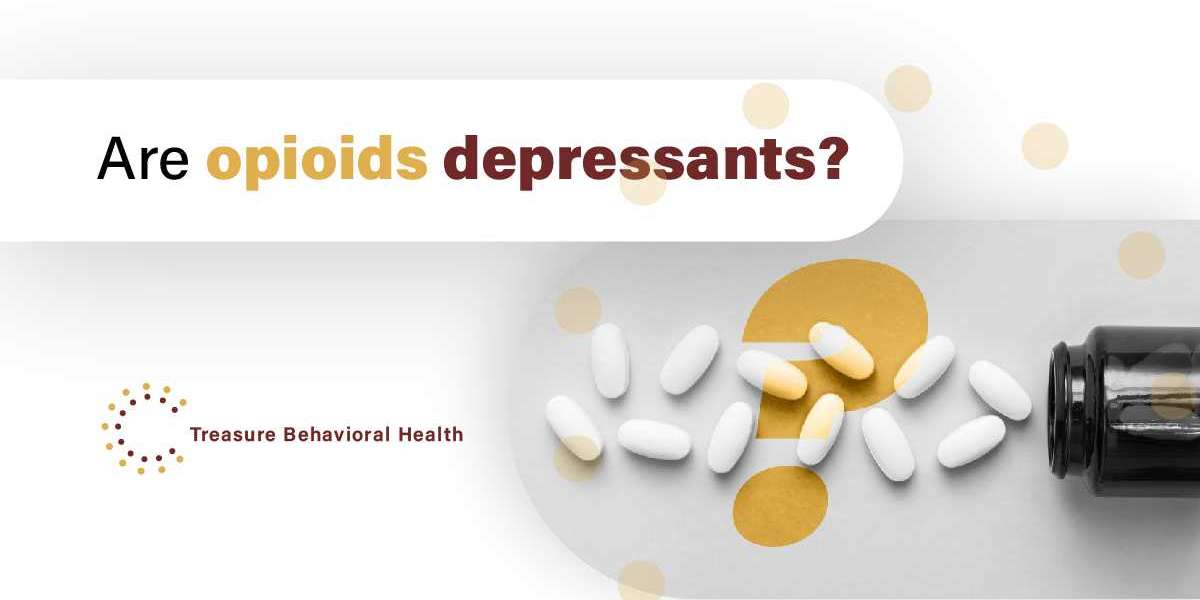When it comes to understanding opioids, there is often confusion about whether they are classified as depressants or not. As a leading provider of mental health services, Treasure Behavioral Health, the best mental health clinic in Fair Oaks, is dedicated to educating the public about the different types of substances, their effects, and the impact they have on our health. In this blog, Dr. Roberta Iyamu answers the common question: Are opioids depressants?
What Are Opioids and How Do They Work in the Body?
Opioids are a class of drugs primarily used for pain management. These drugs, including morphine, heroin, oxycodone, and fentanyl, interact with receptors in the brain and nervous system to block pain signals and produce a feeling of euphoria. While opioids are generally known for their pain-relieving properties, their impact on the body can be much more complex.
Are Opioids Depressants?
To answer the question directly: yes, opioids are considered depressants. But what exactly does that mean?
Depressants are substances that slow down the activity of the central nervous system (CNS). This can result in drowsiness, relaxation, and a reduction in the intensity of pain or anxiety. In the case of opioids, they reduce brain activity by binding to opioid receptors, which dampens the body's pain response and can also induce feelings of calm and sedation. So, when we ask, Is opioid a depressant? the clear answer is yes.
What Do Depressants Do?
Depressants generally decrease the activity of the CNS, leading to slower heart rates, reduced breathing rates, and an overall sense of relaxation. In some cases, depressants are prescribed for anxiety, insomnia, or other conditions where calming effects are needed. However, when abused, depressants like opioids can cause severe side effects, including respiratory depression, which can be fatal.
Are Opioids Stronger Than Other Depressants?
The next question that often comes up is whether pain relievers are stronger than other depressants. In terms of their potency and effects, opioids are indeed stronger than many other depressants. While substances like benzodiazepines (e.g., Valium or Xanax) are also CNS depressants, opioids are specifically designed to block pain signals, making them highly effective but also highly addictive.
How Do Opioids, Depressants, and Stimulants Work in the Body?
The difference between depressants and stimulants is quite pronounced. Stimulants such as cocaine or methamphetamine increase brain activity and energy levels, while depressants like opioids slow down CNS activity. Opioids, like other depressants, produce sedation and can lead to a feeling of calmness or euphoria. However, opioids do so more by inhibiting pain sensations, which can make them both physically and psychologically addictive.
Are Opiates Depressants?
Yes, opiates (a subset of opioids that include natural substances like morphine) are also classified as depressants. Morphine, for example, is widely known to be a depressant that can have significant effects on a person's ability to breathe and perform other vital functions. Like other opioids, opiates are designed to depress CNS activity, which can result in a sense of relief from pain or discomfort.
Which Drugs Are Designed to Depress Central Nervous System Activity?
Drugs that are designed to depress central nervous system activity include alcohol, benzodiazepines, barbiturates, and opioids. All of these substances slow down the brain's function and induce effects such as drowsiness or a calming sensation. However, due to the addictive nature of opioids, they are often considered much more dangerous than other depressants, particularly when used over long periods or without proper medical supervision.
Are Opioids Depressants? A Summary
In conclusion, opioids are depressants that work by inhibiting the central nervous system, reducing pain, and inducing calming effects. While pain relievers like opioids may be stronger than many other depressants in their potency, they also carry significant risks, including addiction and respiratory failure. Understanding how opioids, opiates, and other depressants work in the body can help prevent misuse and lead to safer usage under medical supervision.
At Treasure Behavioral Health, the best mental health clinic in Fair Oaks, we are committed to supporting individuals struggling with opioid addiction and providing resources for those seeking help. If you or a loved one is dealing with opioid dependency, contact us today to learn more about treatment options and begin the journey toward recovery.











